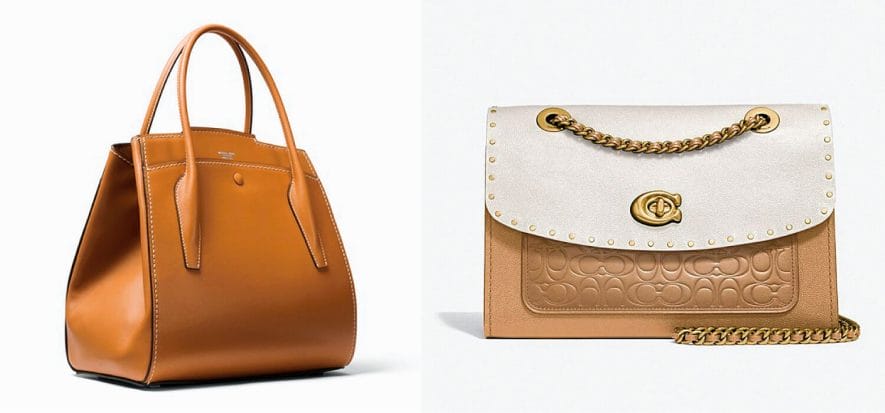Aiming to close the gap between their business and LVMH and Kering, American Capri Holdings and Tapestry realized it is high time they were focusing on leather goods accessories, even though the market is rather packed. Reasons for that are crystal clear. Several luxury brands, which first came up as fashion houses basically, became extremely popular by making bags: Chanel, Dior, Balenciaga, Saint Laurent and Celine.
Capri Holdings development
John D. Idol, chairman and chief executive officer of Capri Holdings, assumes that luxury market growth is bound to be consistent and long-lasting in the next 20 to 30 years. The chief executive officer, who granted an interview while speaking to Business of Fashion, is going to focus on the brand’s identity. Consequently, he ruled out the possibility of immediate changes in the creative trends of their portfolio’s brands, namely Michael Kors, Versace and Jimmy Choo. The former will mostly invest in Asia, prêt-à-porter and luxury accessories. At present, the company is offsetting the downturn in sales, as for affordable luxury bags, thanks to demand for premium bags, which has been increasing (in example given, the Bancroft model). They are also due to make their debut, next winter, with men’s footwear. As for Versace, the brand is supposed to increase the number of stores (especially in the United States of America, whose revenues account for 18% only) and women’s sales (currently they account for 51% of global revenues). Business related to accessories might potentially support Versace in a long-term period; likewise, Jimmy Choo is supposed, according to Capri Holdings’ plans, to develop its own business by selling bags.
Tapestry’s European mission
Tapestry most rely on China’s business, and place relevant expectations on Europe’s market. Here for the group (which is the owner of Coach, Stuart Weitzman and Kate Spade) there is room for remarkable improvement. Victor Luis, chief executive officer of the group, stressed some figures while speaking to World Footwear: “Revenues coming from bags and accessories amount to 11,5 billion dollars, and Europe accounts for 25% of global turnover. As for the premium footwear business, its turnover amounts to 6,5 billion dollars, and Europe’s market accounts for 21% of overall earnings”. Tapestry will manage to gain ground in some markets, such as France and Italy, where traditional brands are progressively becoming less important to younger consumers. About shoes, focus on sneakers, as Tapestry are widening their supply. “We are striving hard to build up the brand’s reputation in Europe through sound partnership deals in the wholesale channel; in addition, we are focusing on some places which are appealing to local consumers and tourists as well”, wrapped up Luis.











